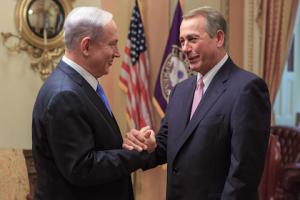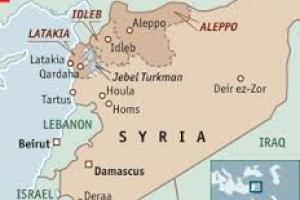Libya: Before and After Muammar Gaddafi
teleSUR
 Following Israeli Prime Minister Benjamin Netanyahu’s speech to Congress last week the tension between the Republican-dominated Congress and President Barack Obama has reached a near constitutional crisis. While this crisis may subside, the more lasting impact of these developments may well be a change in relationship between the Israeli government, the Republican Party, and the traditionally bipartisan U.S. consensus towards Israel and wider Middle Eastern issues.
Following Israeli Prime Minister Benjamin Netanyahu’s speech to Congress last week the tension between the Republican-dominated Congress and President Barack Obama has reached a near constitutional crisis. While this crisis may subside, the more lasting impact of these developments may well be a change in relationship between the Israeli government, the Republican Party, and the traditionally bipartisan U.S. consensus towards Israel and wider Middle Eastern issues.
 In some ways the Syrian civil war resembles a proxy chess match between supporters of the Bashar al-Assad regime— Iran, Iraq, Russia and China—and its opponents— Turkey, the oil monarchies, the U.S., Britain and France. But the current conflict only resembles chess if the game is played with multiple sides, backstabbing allies, and conflicting agendas.
In some ways the Syrian civil war resembles a proxy chess match between supporters of the Bashar al-Assad regime— Iran, Iraq, Russia and China—and its opponents— Turkey, the oil monarchies, the U.S., Britain and France. But the current conflict only resembles chess if the game is played with multiple sides, backstabbing allies, and conflicting agendas.
Spread the word